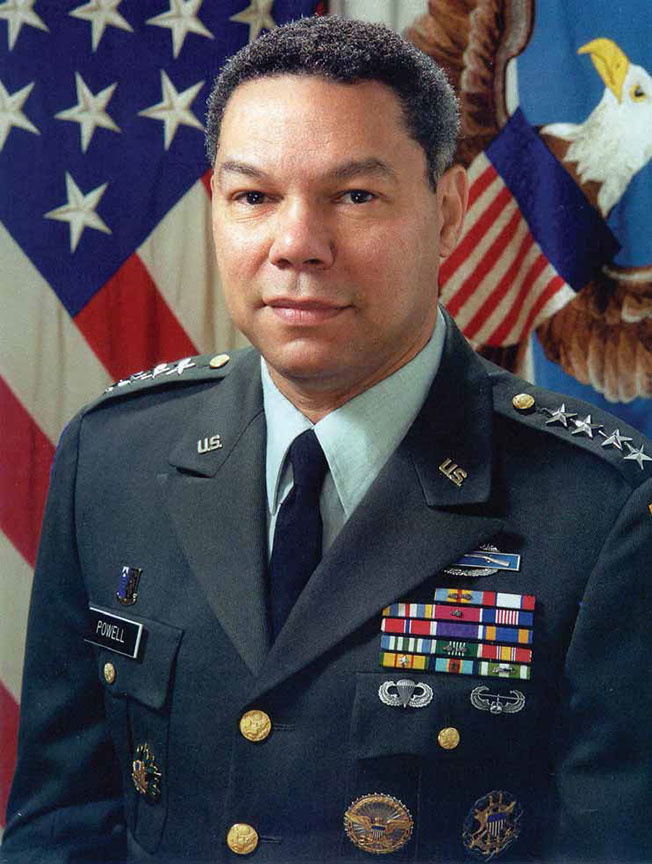1989 Powell Chairman of JOINT Chiefs of Staffs

Colin Powell was appointed to be the Chairman of the Joint Chief of Staffs, the highest postion in the United States Armed forces, on October 1, 1989.
Colin Powell's appointment as the Chairman of the Joint Chiefs of Staff marked a significant moment in U.S. military history. On October 1, 1989, Powell became the first African American to hold the highest military position in the United States Armed Forces. As Chairman of the Joint Chiefs of Staff, Powell served as the principal military advisor to the President, the Secretary of Defense, and the National Security Council. His tenure in this role spanned from 1989 to 1993, a period marked by significant global events and military operations. Powell was born in Harlem, New York, on April 5, 1937, and grew up in the South Bronx. He attended the City College of New York (CCNY), where he participated in the Reserve Officers' Training Corps (ROTC). After graduating in 1958, Powell was commissioned as a second lieutenant in the U.S. Army. Over the next three decades, he rose through the ranks, serving in various capacities, including two tours in Vietnam, where he was wounded in action and received several military decorations, including the Purple Heart and the Bronze Star. By the time Powell was appointed Chairman of the Joint Chiefs of Staff, he had already accumulated a wealth of experience in both combat and administrative roles. Before his appointment, he served as the National Security Advisor from 1987 to 1989 under President Ronald Reagan. In this role, Powell played a key part in the administration's foreign and defense policy, including efforts to manage the winding down of the Cold War. As Chairman of the Joint Chiefs of Staff, Powell oversaw several significant military operations. One of the most notable was Operation Just Cause, the U.S. invasion of Panama in December 1989, aimed at deposing Panamanian leader Manuel Noriega. The operation, which involved more than 27,000 U.S. troops, was executed swiftly, and Noriega was captured and brought to the United States to face drug trafficking charges. However, Powell is perhaps best known for his role in the Persian Gulf War, which began in 1990 after Iraq, led by President Saddam Hussein, invaded Kuwait. Powell was instrumental in the planning and execution of Operation Desert Storm, the coalition-led effort to expel Iraqi forces from Kuwait. Under Powell's leadership, the U.S. military, along with allied forces, launched a massive air and ground campaign that successfully liberated Kuwait in February 1991. The operation was noted for its use of overwhelming force and advanced technology, which contributed to a swift victory with relatively few casualties on the coalition side. Powell's approach to military strategy during this period became known as the "Powell Doctrine." This doctrine emphasized the importance of using overwhelming force to achieve decisive victory, ensuring clear objectives, and maintaining public and congressional support for military actions. The principles outlined in the Powell Doctrine would influence U.S. military strategy for years to come. In addition to his strategic contributions, Powell's tenure as Chairman of the Joint Chiefs of Staff was also significant for his efforts to modernize and adapt the U.S. military to the post-Cold War era. He advocated for a reduction in the size of the military in response to the diminished threat from the Soviet Union, while also emphasizing the need to maintain a capable and technologically advanced force. Powell's time as Chairman ended in 1993. |
